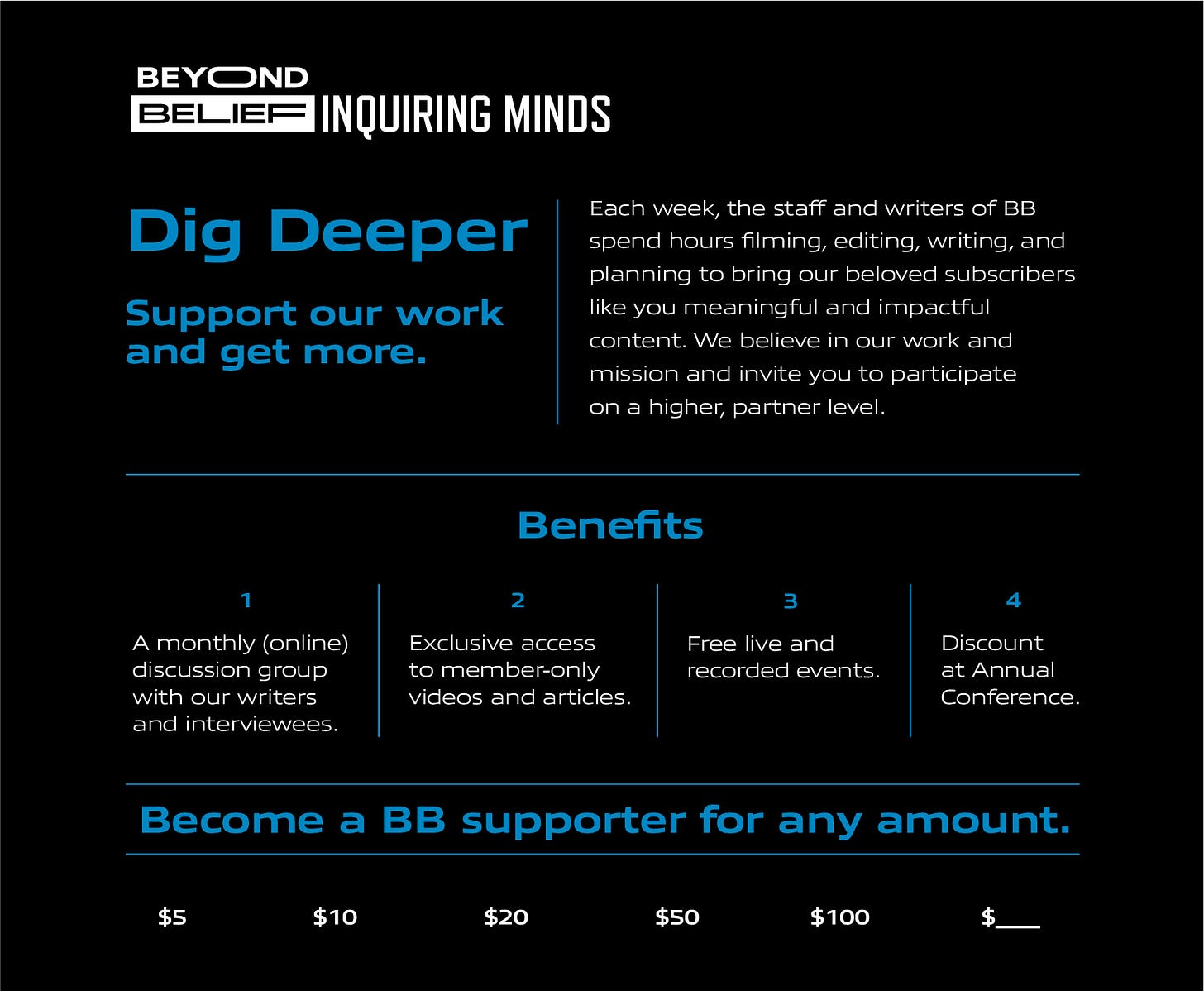Everything is Changing and Nothing Has Changed
How to reconcile the finite with the infinite
Ch Ch Ch Ch Changes. Turn and face the strange.
—David Bowie
In his inimitable way, Bowie highlights two inseparable things—the fact of change and its confusing and bizarre nature. It’s an old problem. Two famous Greek philosophers duked it out on this score over 2500 years ago. The first, Heraclitus believed that change is a universal feature of reality and that whatever seems permanent is essentially an illusion. We remember him for having said, “You can never step in the same river twice.” That seems to make sense as there are always new water molecules ambling down the river, and yet, we relate to the Seine, the Rio Grande, and the Danube as one and the same thing over the course of centuries. So which is it?
Heraclitus’ sparing partner was Parmenides. He held that it’s not permanence that’s illusory but rather change itself. He divided reality into two states—being and non-being. He believed that being-like things can only change if caused to do so by something other than themselves, but since the only other thing besides being is non-being (which is the same as nothing), change is impossible.
This conundrum exists in equal measure in classical theism. If it’s accepted that there cannot be an infinite regress of events, then it would seem that there must be a singular, ultimate cause of all that is—one that was not caused by anything at all but simply is—having always existed in a changeless state. This entity has been called many things (The Prime Mover, the Singularity, the Uncaused Cause, The Ever-Present Origin, God, et al.)
The issue is that in this conception, it is a literal impossibility for this entity to change in any way, as the ability to change implies an earlier cause in the causal chain, which, as we said, has to terminate somewhere. The obvious question is, if this infinite, timeless, and changeless being exists, then what the heck are we doing here? How could we be here as we are finite beings? Infinity should have filled every nook and cranny of reality, leaving no “room” for anything else.
One way of trying to answer this paradox is by approaching it as a matter of perspective. Consider the Doppler Effect we have all experienced. When a Kenworth Semi is hurtling toward us, its pitch is higher and becomes dramatically lower as it passes. If your good buddy is standing 300 feet away from you (it’s driving toward you but away from him), you will hear a high-pitched sound as he hears a low one. Which is the “real” sound? The truth is that the sound coming from the Truck contains the potential of multiple pitches within it and will be perceived differently depending on the vantage point. We are interacting with a slice of the whole, but the whole (the sound from the truck) is unaltered.
This works with light as well. In the phenomenon known as the Red Shift, light that is traveling away from us looks redder, and light that is traveling toward us looks bluer. We are also all familiar with the idea of a prism and its ability to bend light into different shades, revealing what was already latent within it—all of the colors of the rainbow. Again, it’s the same light, but depending on how we are relating to and interacting with it, it manifests differently to us. It hasn’t actually changed.
Now, if we can accept the principle that reality is what it is (as illustrated above) but that our perception of it causes it to manifest what we think of as change. And if we accept that a series of (causes) changes cannot go back infinitely but must have begun from a changeless state, then perhaps we can begin to grasp what we, in our manifest finitude, can possibly exist alongside an infinite and fundamentally changeless ultimate reality. From our perspective, there was indeed a major change—from singularity to multiplicity—which has been unfolding since the beginning of our Universe. And yet, like the sound of the truck motor and the unfiltered light, from the perspective of the Infinite, nothing whatever has changed. The whole remains intact.
One important corollary of this conception is that the changeless entity we are describing comes to sound a lot like the monotheistic notion of the Deity. Inasmuch as there must be an ultimate non-contingent force, its non-contingency indicates that it must be singular, for if there were more than one force, each would be limited—and hence contingent—deriving its power from some earlier force. Such a force would also need to be immaterial as material things are changeable and, therefore, contingent. This being would not come into or go out of existence but simply always exist. Finally, as the source of all change, this prime mover would be the ultimate cause of things coming to have the qualities and attributes that they do—eminently, if not formally. Since that would include all powers, we would conclude that this being is all-powerful and all-knowledgeable.
Change is indeed strange. Are we willing to turn and face it?
I'll tip my hat to the new Constitution
Take a bow for the new revolution
Smile and grin at the change all around
Pick up my guitar and play
Just like yesterday
Then I'll get on my knees and pray
We don't get fooled again
—The Who






In the Bhagavad Gita you have the Personal Divine (Saguna Brahman, literally the Divine with qualities - SA guan; the Impersonal changeless Brahman (Nirguna Brahman, the Divine without qualities, NIR guan) and the Purushottoma, the Supreme Spirit, which Arjuna sees in Chapter 11, the same vision of the Supreme Spirit referenced by Oppenheimer while witnessing the first atomic bomb blast)
In Chapter 15, it is revealed that this supreme Spirit reconciles, integrates the Impersonal and personal. Those commentators on the Gita over the ages who have recognized this supreme spirit offer a wide variety of ways of integrating the changing and ever-changeless and reveal ithe apparent conflict to simply be a reflection of the nature of the dualistic mind, which however well it may intellectually conceive of an integration it’s only through gnosis, direct apprehension of the Logos, the Ein Sof, that this apparent conflict can be fully resolved
I am more than content to let all the angels dance on the head of the pin without counting them. I accept paradox and I believe paradox accepts me. Because renewal and change is possible, that is why everything endures.